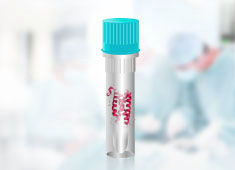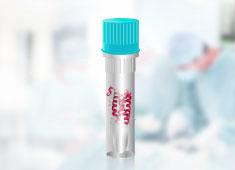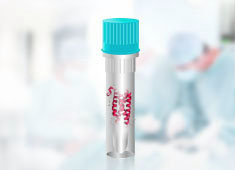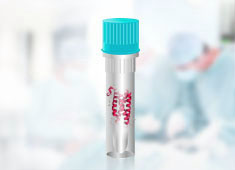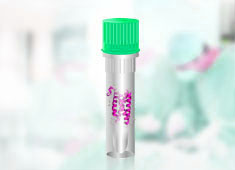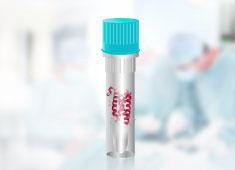人富半胱氨酸蛋白 61(CYR61) (Human)
Description:
Cysteine-rich angiogenic inducer 61 (Cyr61) encoded by the Cyr61 gene is a dynamically expressed, multifunctional matricellular protein and it is also a secreted, extracellular matrix (ECM)-associated signaling protein of the CCN family. Cyr61 plays essential roles in cardiovascular development during embryogenesis and regulates inflammation, wound healing and fibrogenesis in the adult. Aberrant CCN1 expression is associated with myriad pathologies, including various cancers and diseases associated with chronic inflammation. Mature human Cyr61 shares 93 % amino acid sequence identity with mouse and rat Cyr61. Cyr61 consists of four domains. There are an IGFBP domain, a VWF type C domain, a TSP type I domain, and a cysteine knot domain.
Source:
Escherichia coli
Unit:
5 μg/20 μg/1000 μg
Formulation:
Lyophilized from a 0.2 μm filtered concentrated solution in citrate buffer solution,300 mM NaCl, pH 3.0.
Molecular Weight:
Approximately 39.4 kDa, a single non-glycosylated polypeptide chain containing 357 amino acids.
Endotoxin:
Less than 1 EU/μg of rHuCYR61 as determined by LAL method.
Purity:
> 95 % by SDS-PAGE and HPLC analyses.
Biological Activity:
Fully biologically active when compared to standard. The ED50 as determined by a cell proliferation assay using murine Balb/3T3 cells is less than 3.0 μg/ml,
corresponding to a specific activity of > 330 IU/mg.
Physical Appearance:
Sterile Filtered White lyophilized (freeze-dried) powder.
AA Sequence:
TCPAACHCPL TALKGICRAQ CPNPRLVKVT SSLKRLPVFG RICEVRPCGQ PQLTRTVKMR EAPKCAPGVG
SEGRPCEYNS GQCCEEWVCD MEPRILYNPL PVYSSLKKGK FRCEDGETFS LVRDGCGCCK RIYQNGESFQ
EDSIKDPMED QGQKCIVQTT KCSKTKKSPE KNVMMIQSCK VCAKQLNEDC PNCKHQCTCI QDGLLGKELG
SWSQCSKTCG PVRFTYAGCL CNYNCPHANE SKTQPCDHTK DGAVGCIPLC FDASEVELTR TGISTRVTND
SVKKYRPKYC AAFPFYRLFN GLECNFGASS PQELSLPNLG NNELIAVGKG NPECRLVKETGSCVDGRCCT
DIHKFRD
Reconstitution:
We recommend that this vial be briefly centrifuged prior to opening to bring the contents to the bottom. Reconstitute in sterile distilled water or aqueous buffer containing 0.1 % BSA to a concentration of 0.1-1.0 mg/mL. Stock solutions should be apportioned into working aliquots and stored at ≤ -20 °C. Further dilutions should be made in appropriate buffered solutions.
Storage:
This lyophilized preparation is stable at 2-8 °C, but should be kept at -20 °C for long term storage, preferably desiccated. Upon reconstitution, the preparation is stable for up to one week at 2-8 °C. For maximal stability, apportion the reconstituted preparation into working aliquots and store at -20 °C to -70 °C.Avoid repeated freeze/thaw cycles.
Usage:
This material is offered by Cyagen Biosciences for research, laboratory or further evaluation purposes.
FOR RESEARCH USE ONLY. NOT INTENDED FOR ANY ANIMAL OR HUMAN THERAP EUTIC OR DIAGNOSTIC USE.
Material Safety Data Sheets (MSDSs) are available upon request. The Certificate of Analysis (COA), which provides detailed quality control information for each product, is also available at the Cyagen website.
Cyagen Biosciences reserves all rights on the technical documents of its OriCell® cell culture products. No part of this document may be reproduced or adapted for other purposes without written permission from Cyagen Biosciences.
填写需求描述给我们
工具快速咨询
400-680-8038
info@oricellbio.cn


